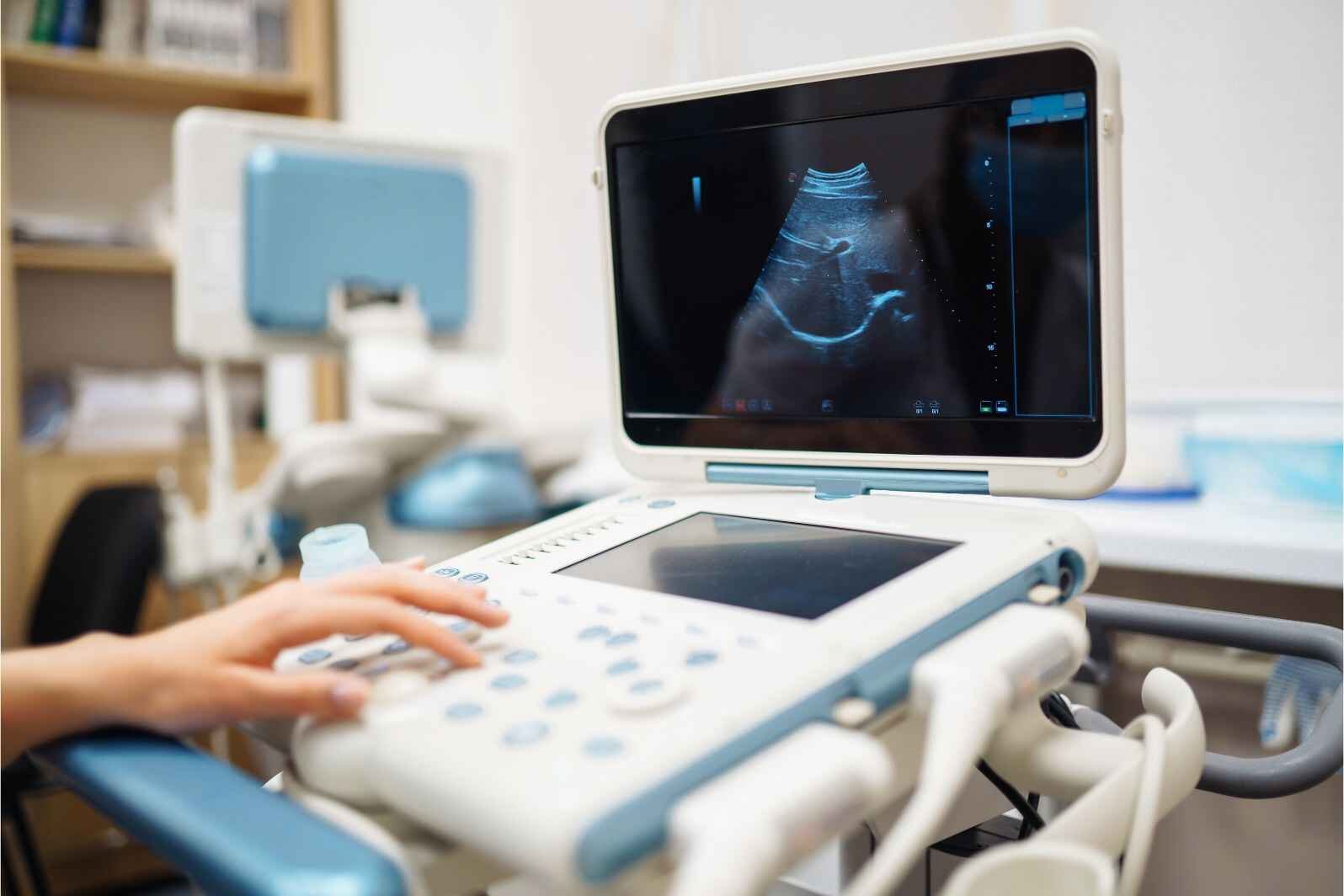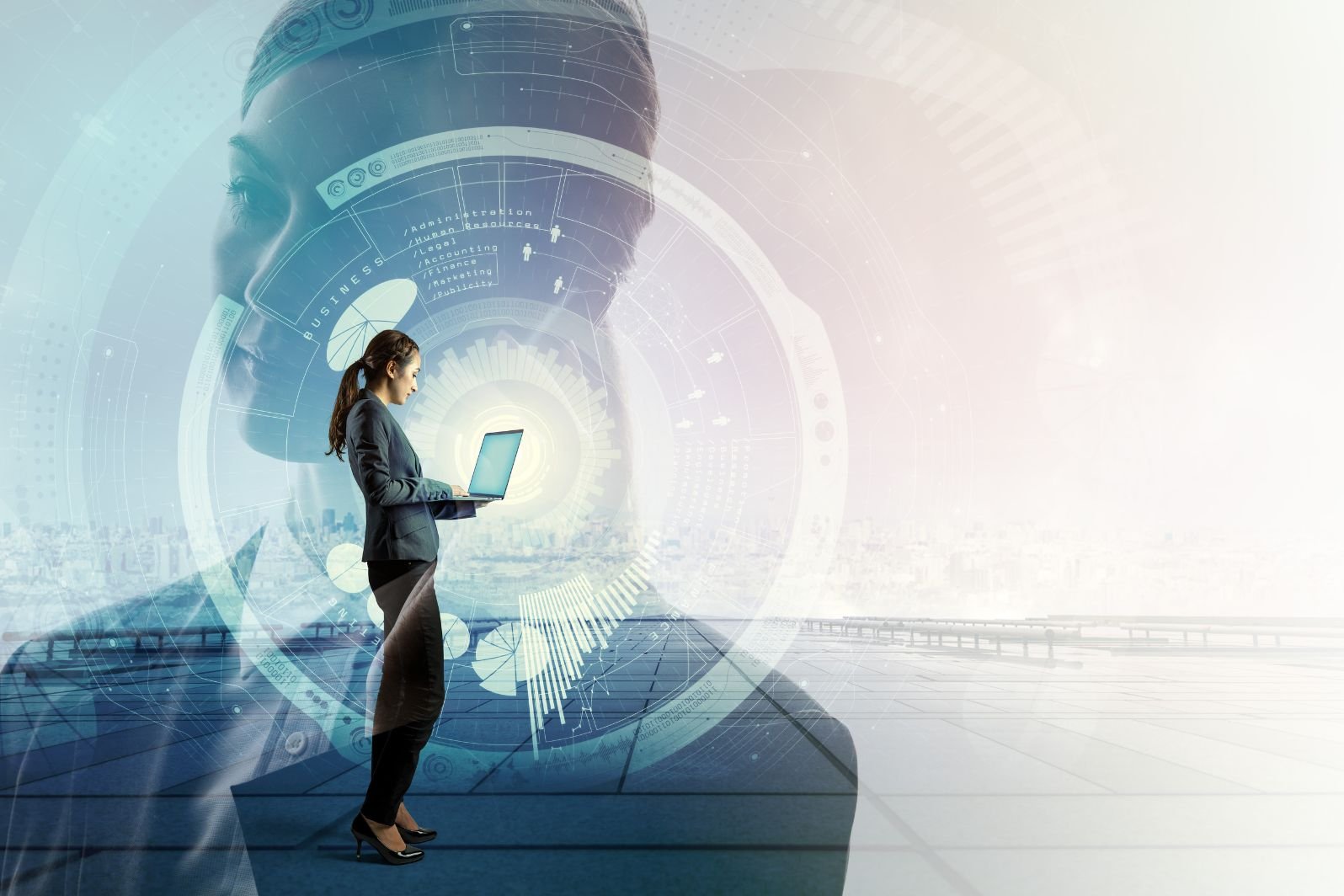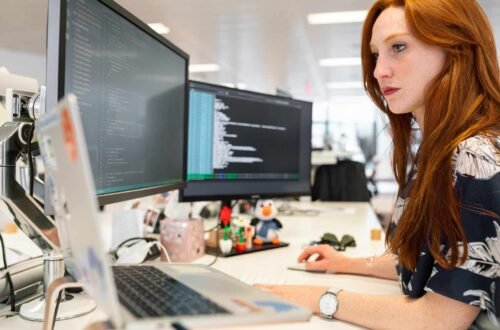“Technology is reshaping our lives, our work and even what it means to be healthy. AI healthcare is one of the most significant things that have emerged over the past few years. From early disease detection to enabling physicians to make better decisions, AI based diagnostics are showing signs to be a real game changer.
In this article, we explain what AI diagnostics are, how they are applied in hospitals and clinics, what the advantages they offer are, and the challenges and hopes for the future for patients and doctors.
What is AI Powered Diagnostics?
Smart computer systems with artificial intelligence power the diagnostics which can process medical data such as X-rays, MRI images, blood tests, or patient history. These are systems that have been trained on millions of medical records. They had learned to see patterns that are indistinguishable to the naked human eye.
An A.I. tool can be trained to look at an eye scan and say whether a patient would develop the early stages of diabetes within five years. Likewise, AI can read through a chest x-ray and identify lung infections, tumors or even symptoms of Covid-19 within seconds.
Applications of AI in Healthcare Diagnostics
We are not here to replace doctors with A.I.” Rather, it enables them to make quicker and more accurate decisions. The following are some common uses of AI in healthcare diagnoses:
1. Medical Imaging
AI is great at reading medical images (like X-rays, CT scans and MRIs). They can immediately detect if there are any abnormal growths, fractures or other health issues. For instance, AI is able to pick up breast cancer tumours in mammograms even from the earliest stages.
2. Pathology and Lab Tests
At pathology labs, AI is deployed to examine blood samples, urine samples and tissue slides. This cuts back on time for reports and on accuracy.
3. Predictive Analytics
AI can analyze a patient’s medical history and anticipate future risks. It can, for instance, predict if a person is at high risk of heart attack or kidney failure. This gives doctors a chance to take preventive measures.
4. Dermatology and Skin Care
A.I. apps can look at pictures of skin rashes, acne or moles and determine if they’re likely harmless or skin cancer.
5. Ophthalmology
AI is deployed in eyecare in which the detection of diseases such as diabetic retinopathy and glaucoma takes place at an early stage.
6. Infectious Disease Detection
Amid the coronavirus pandemic, AI has been harnessed to monitor cases, forecast outbreaks and even diagnose infection from X-ray scans.
Benefits of AI Powered Diagnostics
Artificial intelligence in health care has the potential to be as diverse and far-reaching in benefit as it is in application.
1. Faster Results
AI systems can pore through medical data in seconds rather than hours or days for a manual diagnosis. This helps in faster treatment.
2. High Accuracy
AI-driven tools learn from vast amounts of data and thus minimise human error. They can detect even the most subtle hints of disease.
3. Early Detection of Diseases
The detection of a disease early is very important for the possibility for curing the disease. Early detection — especially for cancer, diabetes and heart disease — is where A.I. comes in.
4. Cost Saving
AI can help hospitals cut the number of repeated tests needed and save patients money. It also eases the burden on doctors and lab workers.
5. Better Access to Healthcare
When specialist doctors are hard to find in rural areas, AI powered apps can assist in early screening of patients. For it is that no one remains untreated.
Challenges in AI Diagnostics
AI is exciting, but there are also some dispatchable challenges:
1. Data Privacy
Medical data is very sensitive. It could become abused, if not disciplined carefully. Tough regulations are there to protect patient data.
2. Trust Issues
And some patients and doctors might not completely trust the machines. Trust in AI results is going to be a long road.
3. High Cost of Technology
AI systems are expensive to set up. They are not available to all hospitals, especially those in poorer countries.
4. Need for Human Supervision
AI is potent but imperfect. Choices in the end should be left to trained physicians.
5. Bias in Data
If A.I. is trained on a relatively narrow range of data, it can give incorrect results for people from different regions, races or age groups.
Future of AI in Healthcare
The future of artificial intelligence in healthcare is very promising. Over the next few years, we could expect to see:
- AI enabled wearables that are tracking “live” heart rate, sugar level and oxygen level.
- Virtual health coaches who counsel patients on medication, diet and lifestyle.
- AI-aided robotic surgeries to improve accuracy.
- Individualized treatment plans using patient’s genetics and lifestyle.
AI will not replace doctors, but it will be their strong partner. Together, they can deliver better, faster, more cost-effective health care for all.
Real-Life Examples of AI in Healthcare
- Google’s DeepMind AI has been used to identify more than 50 eye conditions by analyzing retina scans.
- IBM Watson Health assists oncologists in recommending cancer treatments.
- Aravind Eye Hospital in India Doctor are using A.I. tools to screen diabetic patients for eye disease.
These are examples that prove that AI is no longer a distant dream; it is actually transforming lives now.
Conclusion
Artificial Intelligence driven diagnostics are an enormous paradigm shift in medicine. They render disease identification quicker, more accurate and more affordable. Whereas there are some challenges such as privacy and cost, the opportunities are too great.
India, with a staggeringly large population but dearth of doctors especially in rural areas, has much to gain from AI-based healthcare solutions. AIf used smartly with policies and training, it can help in ensuring that quality healthcare should reach to door step of every citizen in this country.
‘The road ahead is long and winding… And the healthcare future with AI is a brighter, smarter, more patient-friendly future.
FAQs on AI Powered Diagnostics
Q1. In the future, will AI replace doctors?
No A.I. will not replace doctors. It will help them only to the extent that it gets them speedier and better reports. Doctors will always have the last say on treatment decisions.
Q2. How about AI is it trusty for diagnosis of diseases?
Yes AI is pretty reliable for there is big and diverse data for training. Yet it is not yet quite human-independent.
Q3. How does AI aid rural patients?
AI apps and devices can be used to screen patients and give simple reports in places where no specialist doctors work. This is important for recognizing early and getting early treatment.
Q4. Is my medical data safe in an AI system?
Hospitals and companies applying AI have to observe stringent data privacy regulations. Governments are also passing strict laws to protect patient data.
Q5. Queensland have a computer system that can diagnose diseases such as dementia and pre-emptively detect cancer and other diseases?
AI is able to identify cancer, diabetes, heart diseases, eye diseases, skin disorders, and even infectious diseases at an early stage.





